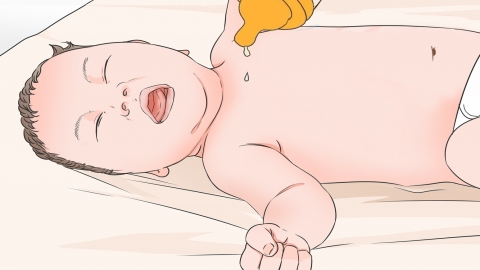What should I do if a two-year-old child has diarrhea that looks like water?
Watery diarrhea generally refers to watery-type diarrhea. Watery-type diarrhea in a two-year-old child may be caused by improper diet, abdominal cold exposure, food allergy, intestinal flora imbalance, or viral gastroenteritis. Management should be based on the specific situation. Parents are advised to take the child to the hospital promptly for diagnosis and follow medical instructions for appropriate treatment.

1. Improper diet: If the child consumes excessive greasy or irritating foods, or eats spoiled or expired food, it may irritate the gastrointestinal tract and cause diarrhea. Adjust the child's diet to include bland, easily digestible foods such as thin millet porridge and well-cooked noodles. Avoid oily and irritating foods.
2. Abdominal cold exposure: Cold exposure to the abdomen may cause gastrointestinal blood vessels to constrict, impairing normal gastrointestinal function, reducing digestive juice secretion, and decreasing intestinal absorption capacity, which can lead to diarrhea. Keep the child's abdomen warm, add clothing as needed, and avoid further chilling. Local heat application, such as using a warm towel or hot water bottle on the child's abdomen, may help relieve diarrhea symptoms.
3. Food allergy: Infants' immune systems are not fully developed, and they may have allergic reactions to certain food components, resulting in diarrhea. In addition to diarrhea, allergic symptoms may include rash, vomiting, and difficulty breathing. Avoid exposure to allergens, and discontinue consumption of any identified allergenic foods immediately.
4. Intestinal flora imbalance: Imbalance in intestinal flora can impair normal digestive function, reduce the intestine's ability to absorb nutrients, and allow harmful bacteria to produce substances that irritate the intestinal mucosa, causing diarrhea. Symptoms may include bloating and alternating episodes of constipation and diarrhea. Parents may administer probiotic medications such as lactobacillus tablets, bifidobacterium quadruple viable tablets, or lactobacillus granules according to medical advice.
5. Viral gastroenteritis: Viruses invading the epithelial cells of the digestive tract can damage cell structures, disrupt digestion and absorption functions, and cause diarrhea, often accompanied by fever, vomiting, and abdominal pain. Parents should administer medications such as cefixime granules, bismuth potassium citrate tablets, or compound berberine tablets under a doctor's guidance to alleviate symptoms.
During treatment, parents should closely monitor the child's mental status and urine output changes to promptly identify and manage the risk of dehydration.





